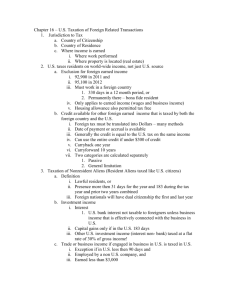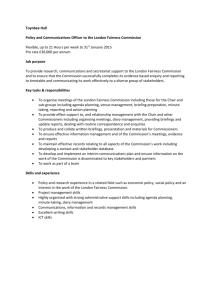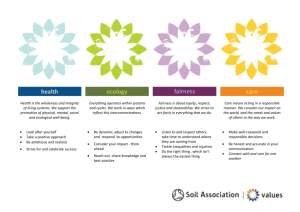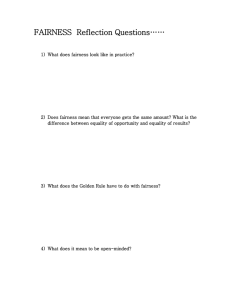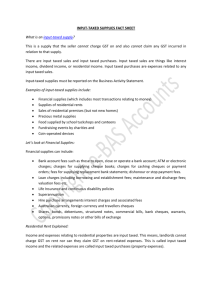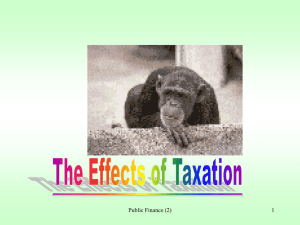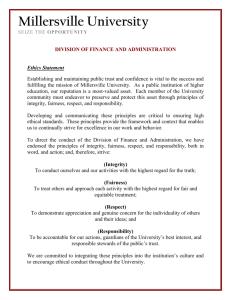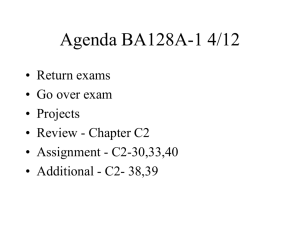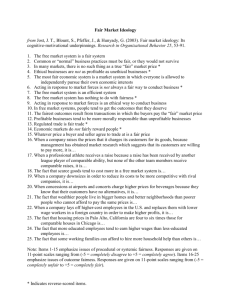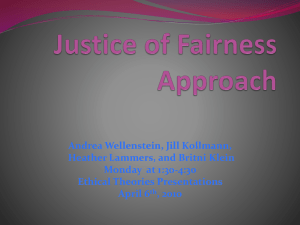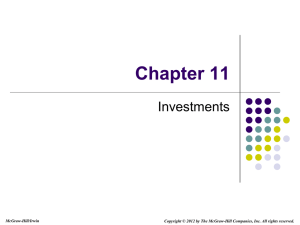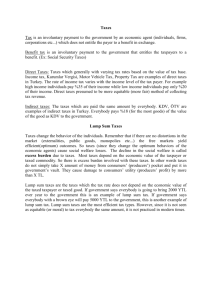Taxreformletter
advertisement
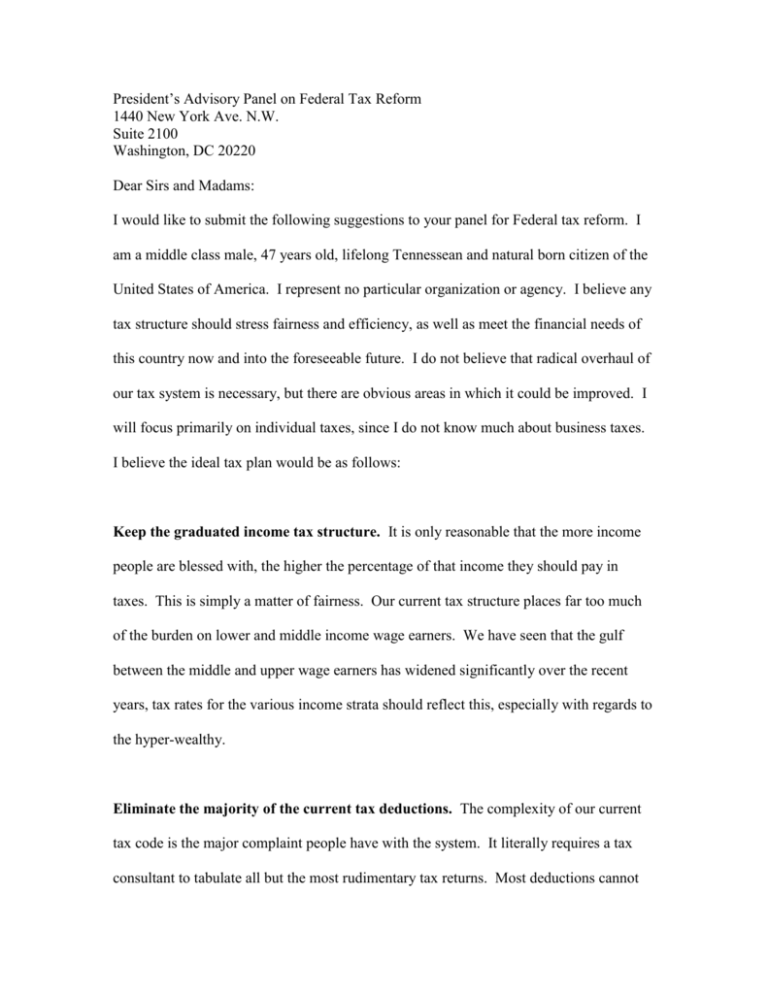
President’s Advisory Panel on Federal Tax Reform 1440 New York Ave. N.W. Suite 2100 Washington, DC 20220 Dear Sirs and Madams: I would like to submit the following suggestions to your panel for Federal tax reform. I am a middle class male, 47 years old, lifelong Tennessean and natural born citizen of the United States of America. I represent no particular organization or agency. I believe any tax structure should stress fairness and efficiency, as well as meet the financial needs of this country now and into the foreseeable future. I do not believe that radical overhaul of our tax system is necessary, but there are obvious areas in which it could be improved. I will focus primarily on individual taxes, since I do not know much about business taxes. I believe the ideal tax plan would be as follows: Keep the graduated income tax structure. It is only reasonable that the more income people are blessed with, the higher the percentage of that income they should pay in taxes. This is simply a matter of fairness. Our current tax structure places far too much of the burden on lower and middle income wage earners. We have seen that the gulf between the middle and upper wage earners has widened significantly over the recent years, tax rates for the various income strata should reflect this, especially with regards to the hyper-wealthy. Eliminate the majority of the current tax deductions. The complexity of our current tax code is the major complaint people have with the system. It literally requires a tax consultant to tabulate all but the most rudimentary tax returns. Most deductions cannot be claimed by average working people. A typical tax return should take up one side of a standard sheet of paper, and no one should have to keep a filing cabinet full of paperwork to do their annual taxes. However, I believe the following deductions should be retained: ● Taxes paid to other governmental jurisdictions – this would include but not be limited to state and local income taxes, state and local sales taxes and property taxes. It is only fair that our wages are not taxed multiple times during the same year. ● Exemption for dependents – a consideration of how many people that are being supported by a wage earner is only fair. The exemption should be indexed for inflation. ● Charity – the charity deduction is the lifeblood of many worthy non-profit institutions. If a person is willing to give their hard earned money to charitable causes, than that money should not be considered income. ● catastrophic medical payments – given the nature of our medical system and the astronomical costs that can be incurred for major illnesses and accidents, it is a matter of compassion to assist people in any way possible who might find themselves in unfortunate and unenviable financial circumstances due to medical problems. Set the lower threshold for tax liability at the National Poverty Level. No one making below the poverty level should pay taxes. This goes without saying for so many reasons. This number should be determined by the GAO and not set by Congress, and should be adjusted annually to reflect changes in the economy. Strive for fairness in the tax brackets and rates. I would suggest the following brackets: ● Poverty level to $30,000 to be taxed at 10% ● $30,001 to $90,000 to be taxed at 20% ● $90,001 to 150,000 to be taxed at 30% ● $150,001 to $500,000 to be taxed at 35% ● $500,000 and above to be taxed at 40% I believe that many people would see a reduction in their tax liability with this rate structure. It reflects a sense of fairness that our tax code should embody. The brackets should be adjusted annually for wage and price inflation. All household income should be combined and taxed accordingly. This is not a “penalty”, it is a reality. Two spouses earning $75,000 each are living the life of people making $150,000 no matter how you look at it. As someone who is single, I can attest to the fact that it is much more difficult to get by on a single income. Capital Gains should be considered income and taxed accordingly. I do not believe that there is anyway to justify a wealthy person who subsists on investments paying a lower rate of taxation than a person making a fraction of that same income. Capital gains should still be calculated from a profit-loss perspective, but any positive gains should be added to ones income tax return and ultimately taxed according to the tax bracket that individual falls in with the combination of income by wages and capital gains. Negative gains should be deducted out of fairness as well. Keep the Inheritance Tax but dramatically raise the lower threshold. This tax should only apply to the wealthy. The reason it is under attack, is that Congress has refrained from increasing the limit, meaning that it affects people who have modest small businesses and family farms. Increase the threshold to $5,000,000 and index that number for inflation, and I suspect the average person would not be concerned with its affects. This is a simple fix. Raise the lower limit of the Alternative Minimum Tax. Same as with the Inheritance Tax, the issue here is not with the fairness of the tax, but with the fact that the lower limit has been allowed to creep into the realm of the upper middle class. Raise the threshold and make this rule do what it was initially intended to do: insure that wealthy people pay their fair share of taxes. Of course, if you were to implement my suggestion for the elimination of most deductions, the AMT would not be necessary. Thank you for your consideration of my opinions. I believe fairness and compassion should be your overriding measure of the best tax system. I know my views are not widely embraced by pundits and politicians, but it is the American people who you serve. Please do what is best for everybody. Thank you and God Bless America, William Thomas Pinkston Jr. 201 Chamberlin Street Nashville, TN 37209 tompinkston@mindspring.com
